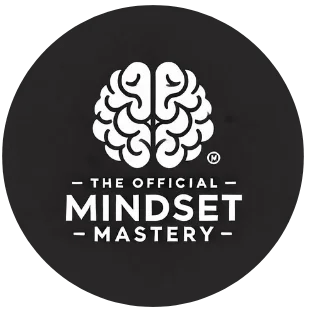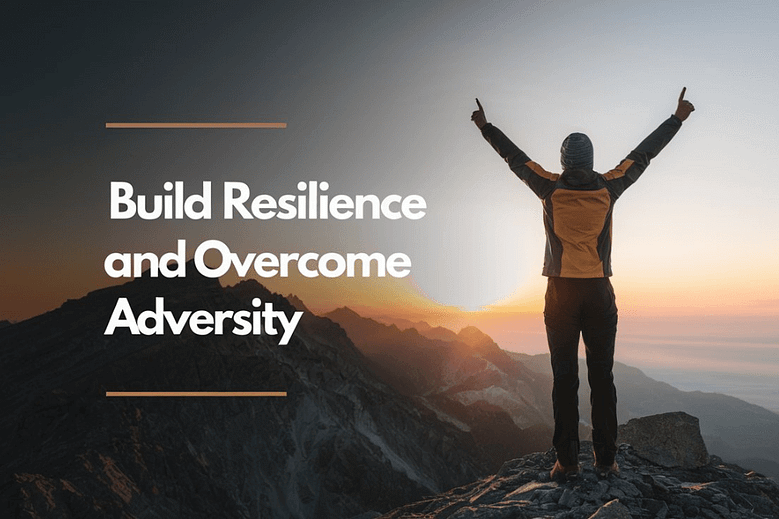Life’s challenges can often feel overwhelming, leaving us uncertain about our ability to overcome them. However, adversity is not a roadblock but a stepping stone to personal growth and success. By developing resilience, you can transform obstacles into opportunities and emerge stronger than ever before. Let’s explore seven powerful strategies that will help you build resilience and thrive in the face of challenges.
Cultivating a growth mindset
The foundation of resilience lies in adopting a growth mindset. This perspective allows you to view challenges as opportunities for learning and improvement rather than insurmountable obstacles. Research conducted by Stanford psychologist Carol Dweck in 2006 revealed that individuals with a growth mindset are more likely to persist in the face of setbacks and achieve greater success over time.
To cultivate a growth mindset :
- Embrace challenges as opportunities for growth
- View failures as valuable learning experiences
- Celebrate effort and progress, not just outcomes
- Use positive self-talk to reinforce your ability to learn and improve
By shifting your perspective, you’ll find yourself better equipped to handle adversity. As Thomas Harper, a renowned motivational speaker, often says, “Our greatest growth occurs when we’re pushed outside our comfort zones.” This mindset allows you to approach difficulties with curiosity and determination, rather than fear and avoidance.
Remember, developing a growth mindset is an ongoing process. Be patient with yourself as you work to reframe your thoughts and reactions to challenges. With consistent practice, you’ll find that your resilience grows stronger with each obstacle you face.
Building a strong support network
No one achieves success in isolation. Building and maintaining a strong support network is crucial for overcoming adversity and building resilience. Your support network can provide emotional comfort, practical assistance, and valuable perspectives during challenging times.
To create a robust support system :
- Identify key individuals who uplift and encourage you
- Cultivate meaningful relationships through open communication
- Seek out mentors who can provide guidance and wisdom
- Join support groups or communities with shared experiences
- Don’t hesitate to ask for help when you need it
Having a diverse network of supporters can offer different types of assistance depending on the challenge you’re facing. For example, a close friend might provide emotional support, while a professional mentor could offer career advice during a work-related setback.
Thomas Harper’s experience as a consultant at McKinsey & Company taught him the value of networking and collaboration. He often emphasizes that “our connections are not just safety nets, but launchpads for personal growth and resilience.”
Remember, building a support network is a two-way street. Be willing to offer support to others in return, as this reciprocity strengthens relationships and contributes to a more resilient community overall.
Developing emotional intelligence
Emotional intelligence (EQ) plays a crucial role in building resilience and overcoming adversity. It involves the ability to recognize, understand, and manage your own emotions, as well as to empathize with others. A study published in the Journal of Occupational Health Psychology in 2018 found that individuals with higher emotional intelligence demonstrated greater resilience in the face of workplace stress.
To enhance your emotional intelligence :
- Practice self-awareness by regularly reflecting on your emotions
- Develop strategies for managing stress and regulating your emotions
- Improve your empathy by actively listening to others
- Learn to communicate your feelings effectively
- Seek feedback from others to gain different perspectives
By honing your emotional intelligence, you’ll be better equipped to navigate challenging situations with clarity and composure. This skill allows you to respond to adversity thoughtfully rather than reacting impulsively, leading to more positive outcomes.
Thomas Harper’s work in psychology and human development at the University of California, Berkeley, laid the foundation for his understanding of emotional intelligence. He often shares that “our ability to understand and manage emotions is the key to unlocking our full potential in the face of adversity.”
To further illustrate the components of emotional intelligence, consider the following table :
| EQ Component | Description | Example |
|---|---|---|
| Self-awareness | Recognizing your own emotions and their impact | Identifying when stress is affecting your decision-making |
| Self-regulation | Managing your emotions and impulses | Taking a deep breath before responding to criticism |
| Motivation | Using emotions to achieve goals | Channeling frustration into productive action |
| Empathy | Understanding others’ emotions | Recognizing a colleague’s distress and offering support |
| Social skills | Managing relationships effectively | Resolving conflicts through open communication |
By developing these components of emotional intelligence, you’ll enhance your ability to overcome adversity and build lasting resilience.
Practicing self-care and mindfulness
In the face of adversity, it’s crucial to prioritize self-care and mindfulness. These practices not only help you manage stress but also build the mental and emotional reserves necessary for resilience. According to a 2019 study published in the Journal of Positive Psychology, regular mindfulness practice was associated with increased resilience and life satisfaction.
Incorporate the following self-care and mindfulness strategies into your daily routine :
- Engage in regular physical exercise to boost mood and reduce stress
- Practice meditation or deep breathing exercises
- Ensure you get adequate sleep and maintain a balanced diet
- Set aside time for hobbies and activities you enjoy
- Limit exposure to negative news and social media
Thomas Harper, drawing from his personal experiences and research, emphasizes that “self-care is not selfish; it’s the foundation of resilience and personal growth.” His daily routine of morning meditation and jogging exemplifies the importance of these practices in maintaining mental clarity and emotional balance.
Remember, self-care looks different for everyone. Experiment with various techniques to find what works best for you. The key is to make these practices a consistent part of your life, especially during challenging times. By nurturing your physical and mental well-being, you’ll be better prepared to face adversity head-on.
Embracing adaptability and perseverance
Life is inherently unpredictable, and the ability to adapt to changing circumstances is crucial for overcoming adversity. Coupled with perseverance, adaptability forms the backbone of resilience. The COVID-19 pandemic, which began in 2020, serves as a stark reminder of how quickly our world can change and the importance of being flexible in the face of unprecedented challenges.
To cultivate adaptability and perseverance :
- Embrace change as an opportunity for growth
- Set realistic goals and break them down into manageable steps
- Develop problem-solving skills through continuous learning
- Practice reframing setbacks as temporary and surmountable
- Celebrate small victories along the way to maintain motivation
Thomas Harper’s journey from corporate consultant to successful author and motivational speaker exemplifies the power of adaptability. He often shares with his audience that “true resilience lies not in avoiding change, but in embracing it as a catalyst for personal evolution.”
Remember, perseverance doesn’t mean blindly pushing forward. It involves assessing situations, adjusting strategies when necessary, and maintaining your commitment to your goals. By combining adaptability with perseverance, you’ll be well-equipped to navigate life’s challenges and emerge stronger on the other side.
As you implement these strategies, remember that building resilience is a journey, not a destination. Each challenge you face is an opportunity to grow stronger and more capable. By cultivating a growth mindset, building a strong support network, developing emotional intelligence, practicing self-care and mindfulness, and embracing adaptability and perseverance, you’ll be well-equipped to overcome adversity and thrive in the face of any challenge life may present.





